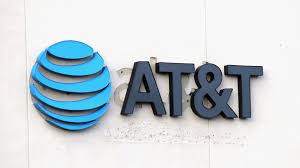AT&T Reports Loss in Fourth Quarter
‘Wonder Woman’ helps HBO hit 41.5 million domestic subscribers with 17.2 million HBO Max activations

The smarter way to stay on top of broadcasting and cable industry. Sign up below
You are now subscribed
Your newsletter sign-up was successful
AT&T reported a loss in the fourth quarter as the pandemic continues to impact the company’s media operations.
The crown jewel of the media operations is the streaming service HBO Max, which, with HBO reached 41.5 million domestic subscribers, up 7 million for the year, partly because of the decision to stream new theatrical films including Wonder Woman 1984. The company said HBO Max activations doubled since the end of the third quarter growing to 17.2 million at the end of the year.
Read Also: HBO Max Wins Biggest Share Of New Q4 Streaming Subs
The company said it lost 617,000 video subscribers.
The fourth quarter net loss was $13.9 billion, or $1.95 a share, compared to net income of $2.4 billion, or 33 cents a share a year ago.
Revenue fell 2.4% to $45.7 billion from $46.8 billion a year ago.
“We ended the year with strong momentum in our market focus areas of broadband connectivity and software-based entertainment,” said CEO John Stankey. “By investing in our high-quality wireless customer base, we had our best full-year of postpaid phone net adds in a decade and our second lowest postpaid phone churn ever. Our fiber broadband net adds passed the 1 million mark for the year. And the release of Wonder Woman 1984 helped drive our domestic HBO Max and HBO subscribers to more than 41 million, a full two years faster than our initial forecast.”
The smarter way to stay on top of broadcasting and cable industry. Sign up below
AT&T said it expected revenue to grow $1 in 2021 and full-year earning per share to be stable.
AT&T’s WarnerMedia unit had operating income of $2.5 billion, down 10.4% from a year ago. Revenue fell 9.5% to $8.6 billion.
HBO operating income fell to $86 million from $481 million a year ago as the company invested in HBO Max. Revenue rose 11.7% to $1.9 billion but expenses were up 48.6% to $18 billion.
Turner operating income was up 7.6% to $1.4 billion. Revenue was flat, with subscription revenue rising and advertising dropping because of the delay to the start of the NBA season. Turner ad revenue were also hurt by lower ratings at TNT and TBS, partially offset by higher ratings at CNN because of the election.
Warner Bros. operating income fell 17% to $791 million as revenue fell 21.2% to 3.2 billion. Theatrical release of the company’s films were delayed because of COVID. Eventually the company decided to release films simultaneously in theaters and on HBO Max beginning with Wonder Woman 1984 on Dec. 25. Television production was also delayed by the pandemic.
Video subscribers revenue was down 11.2% to $7.2 billion. Video EBITDA fell 14% to $619 million.
Jon has been business editor of Broadcasting+Cable since 2010. He focuses on revenue-generating activities, including advertising and distribution, as well as executive intrigue and merger and acquisition activity. Just about any story is fair game, if a dollar sign can make its way into the article. Before B+C, Jon covered the industry for TVWeek, Cable World, Electronic Media, Advertising Age and The New York Post. A native New Yorker, Jon is hiding in plain sight in the suburbs of Chicago.

